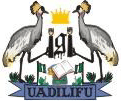IGI believes that for the poor people to know how their governments are run is inherently empowering. Our role in enhancing this is always informative and impartial. We create and strengthen communication mechanisms that enable poor people to raise their concerns and the governments to hear and provide feedback. It may be possible that once the poor get access to information of public interest and have clear channels of communicating their views, that they may pressurize for certain actions and outcomes. At this point, they may start questioning what the government does in their name and feel the pleasure of having space of rewarding or sanctioning those who hold offices in public trust.
1. Public Education
We believe to be a good practice that the government makes information of public interest available to the ordinary people. Due to the fact that most governments don’t feel obliged to release such information into the public domain, the poor people must be made aware that this information exists.
Besides knowing the existence of information, the people should know how to access this information. Likewise the information should be relevant and beneficial to the masses. IGI guides the poor people through this process of getting to know what the government is doing in their name.
IGI focuses on the need to improve poor people’s capacity to analyze and understand public information and to act on that information, then communicate views to policy makers.
Public hearings, public meetings, formal and informal media, theatre, participatory planning, community forums, local leaders committees, round tables, focus groups, citizen advisory groups, citizen lobby groups and public surveys are some of the methods through which IGI enables citizens to access, understand, analyze and respond to public information.
IGI facilitates collective approaches whereby vulnerable groups organize and define their common concerns and aspirations. Such processes allow them to develop a voice and make demands for information that is relevant to them focusing on their pressing needs.
2. Election Monitoring
It is IGI’s position that all the indicators of good governance are anchored on proper, open, representative and inclusive elections. This is the spine of legitimate leadership. If a few power hungry people managed to push their way into public office, they will be accountable to nobody but themselves. They shall serve personal interests at the expense of the public good and issues of integrity and human rights will find no place in their operational structures.
Our Election Monitoring program aims at re-assuring the poor people of their civic responsibility to remain vigilant and actively participating in the political life of their country. We call this political accountability, where the people participate in a regular open, free and fair election where they exercise their free hand in rewarding or punishing those who hold office in public trust.
IGI principally monitors national elections, observing to see that the poor population civic views and desires are safeguarded. In pursuance of the same, we also offer training to polling clerks, electoral officials and parliamentary representatives to nurture a culture of practicing free and fair elections, in the interest of the people.
3. Public Service Training
We define good governance as constantly cultivating, inculcating and upholding personal and institutional integrity in the management of public affairs for the benefit of the public.
Corruption limits opportunities, creates inefficiencies and forms additional barriers to the smooth delivery of public services. Crucially, from the perspective of the IGI, corruption cumulatively undermines the moral fabric of society and stifles any progress towards achieving development goals.
IGI intends to take anti-corruption initiative to a more collective action level. We develop and provide access to training tools and codes relevant to various counties, as well as utilize our clout that comes with representing a broader and active segment of the society for maximum impact.
We utilize our outreach skills and high level access to decision makers to be positive agents for reforms, linking with other state agencies.
These efforts are supported by vigorous empirical diagnostics and analysis.
We maintain open approach that strengthens individual stakeholders’ actions, but also recognize the potential value of collective action through bottom – up coalitions for reform.
IGI believes that it is not enough to assess the symptoms of corruption. We have to look for new tools that will help tackle the demand and supply. The complexity and pervasive nature of corruption calls for moving beyond the conventional training to policy advice based on the latest research, participatory and consensus – building techniques.
This program purposes to benefit the poor as corruption is a hindrance to sustainable development with a disproportionate impact on poor households and corrosive effect on the very fabric of society. It distorts public trust, dilutes public confidence and poses serious reputational risks on the existing link between the governor and the governed.
4. Research
Our research program offers support to the other programs inquiring about problems in the significant areas of our coverage. This may include public finance systems, legislative processes, law reviews, corruption indices and it may also include public perceptions on various governance regimes and matrices.
Research findings are shared among IGI peers and with primary stakeholders before being released to the public. Research is carried out to seek answers to various questions in public governance, to find explanations to certain recurring features of particular policy, to find out new ways of approaching certain governance problems and to seek baseline data to help resolve governance puzzles.
